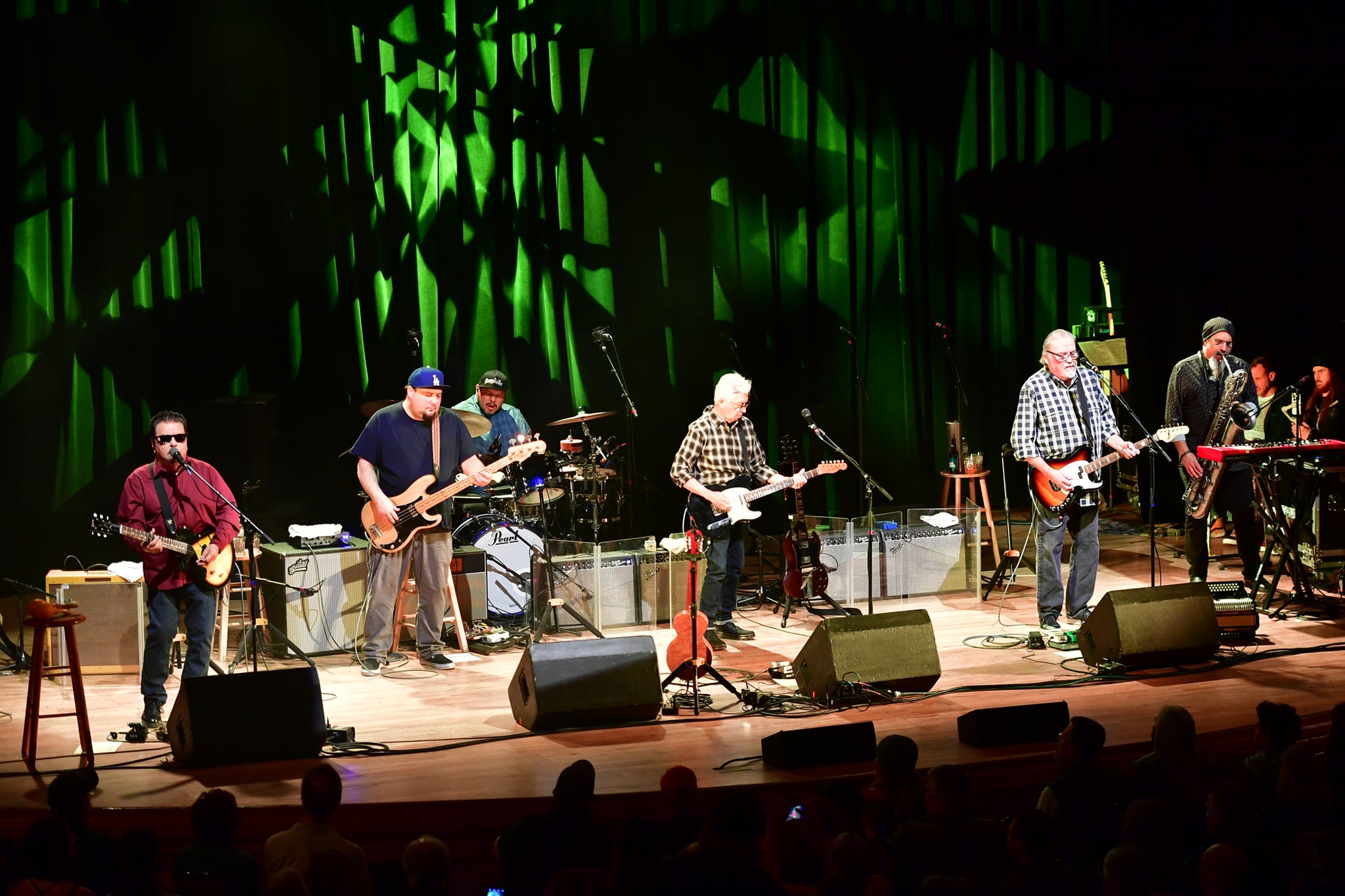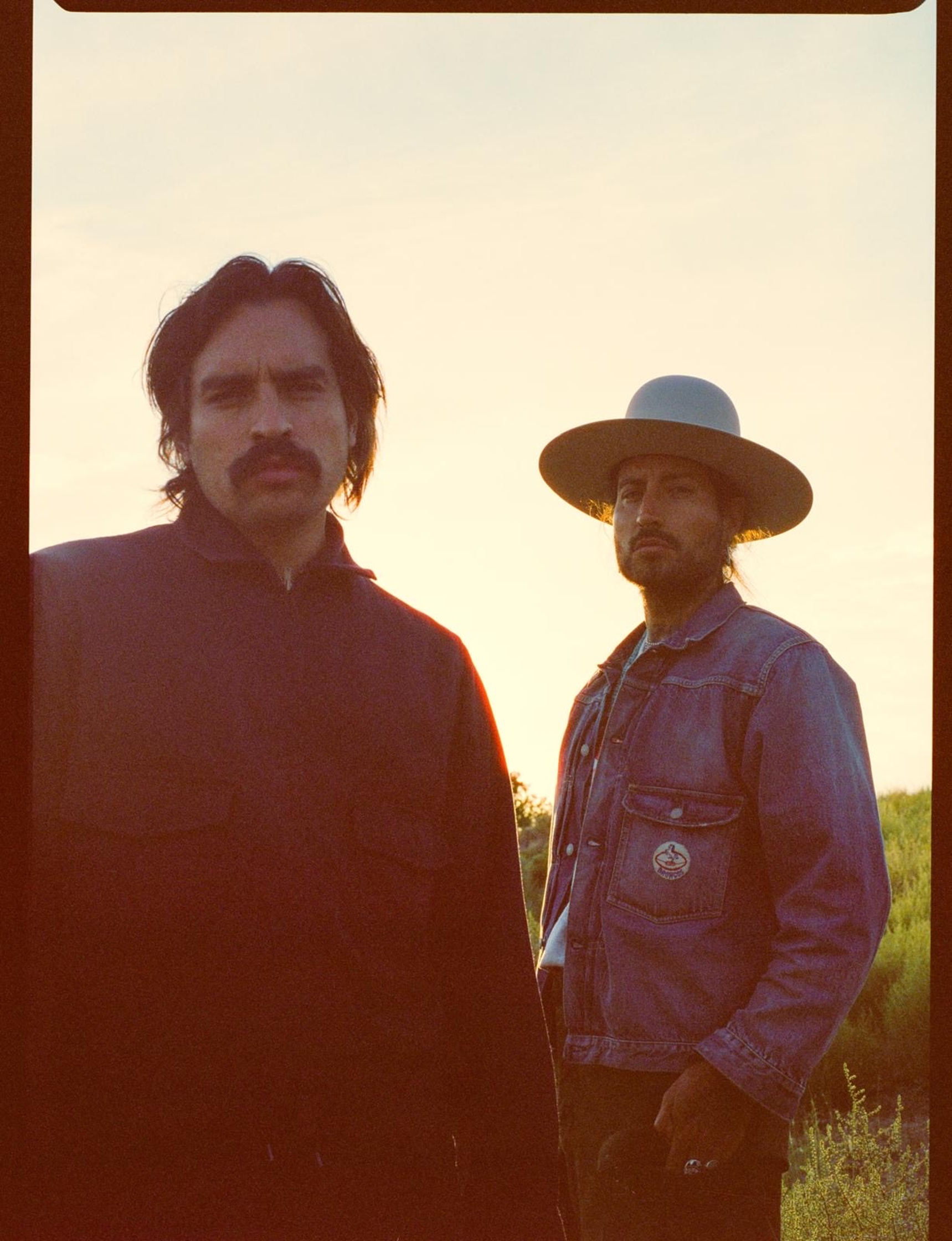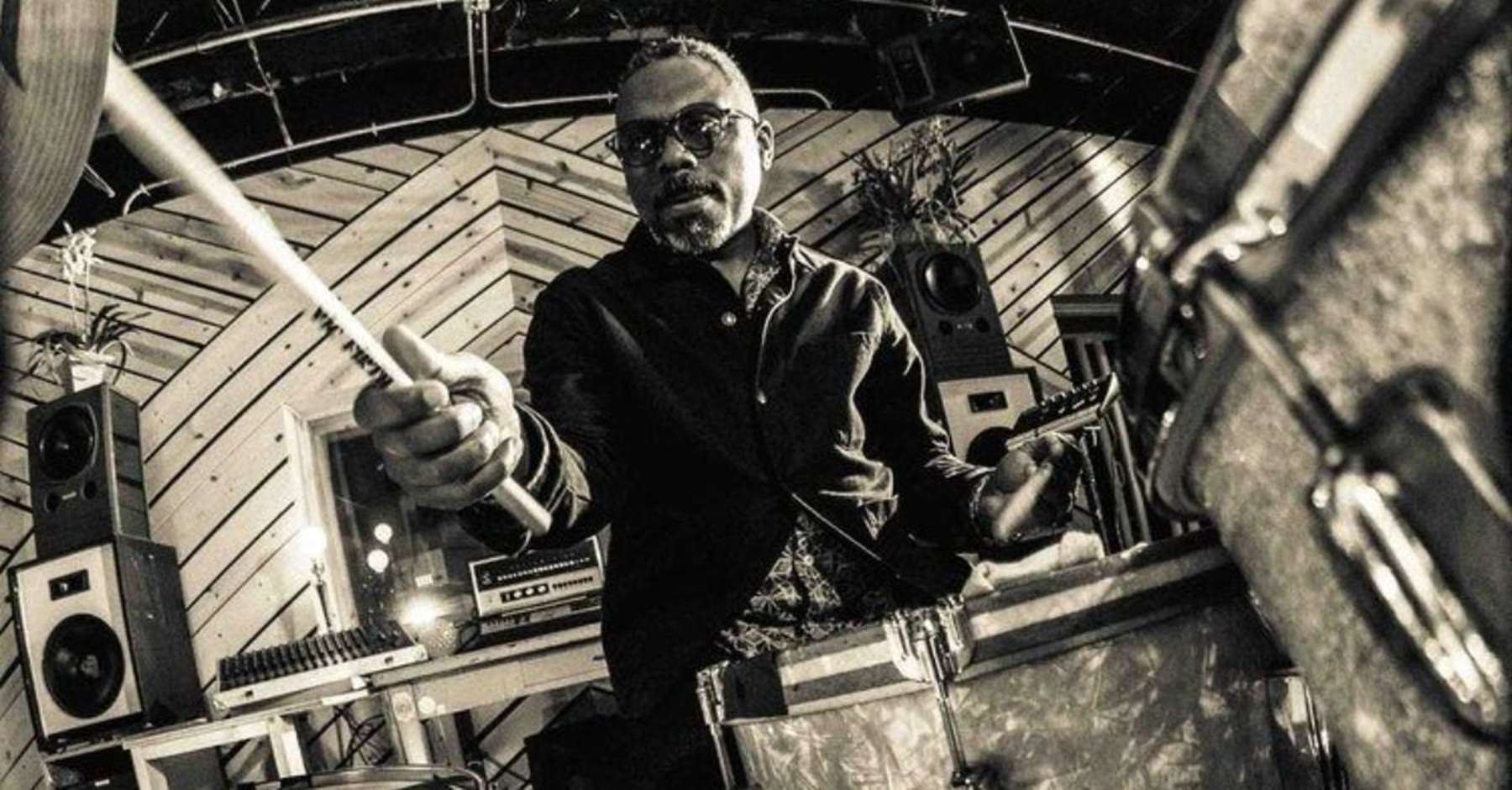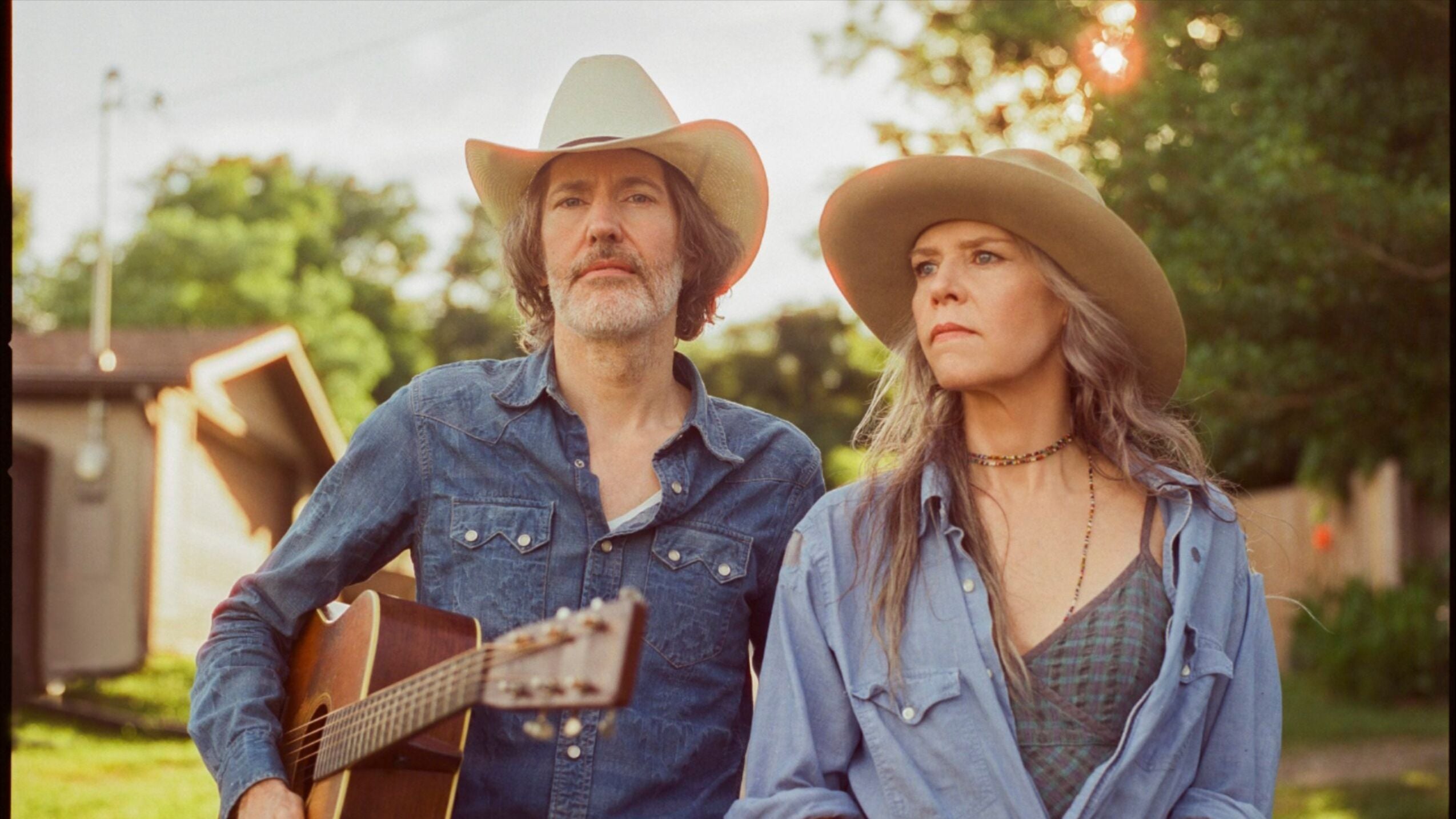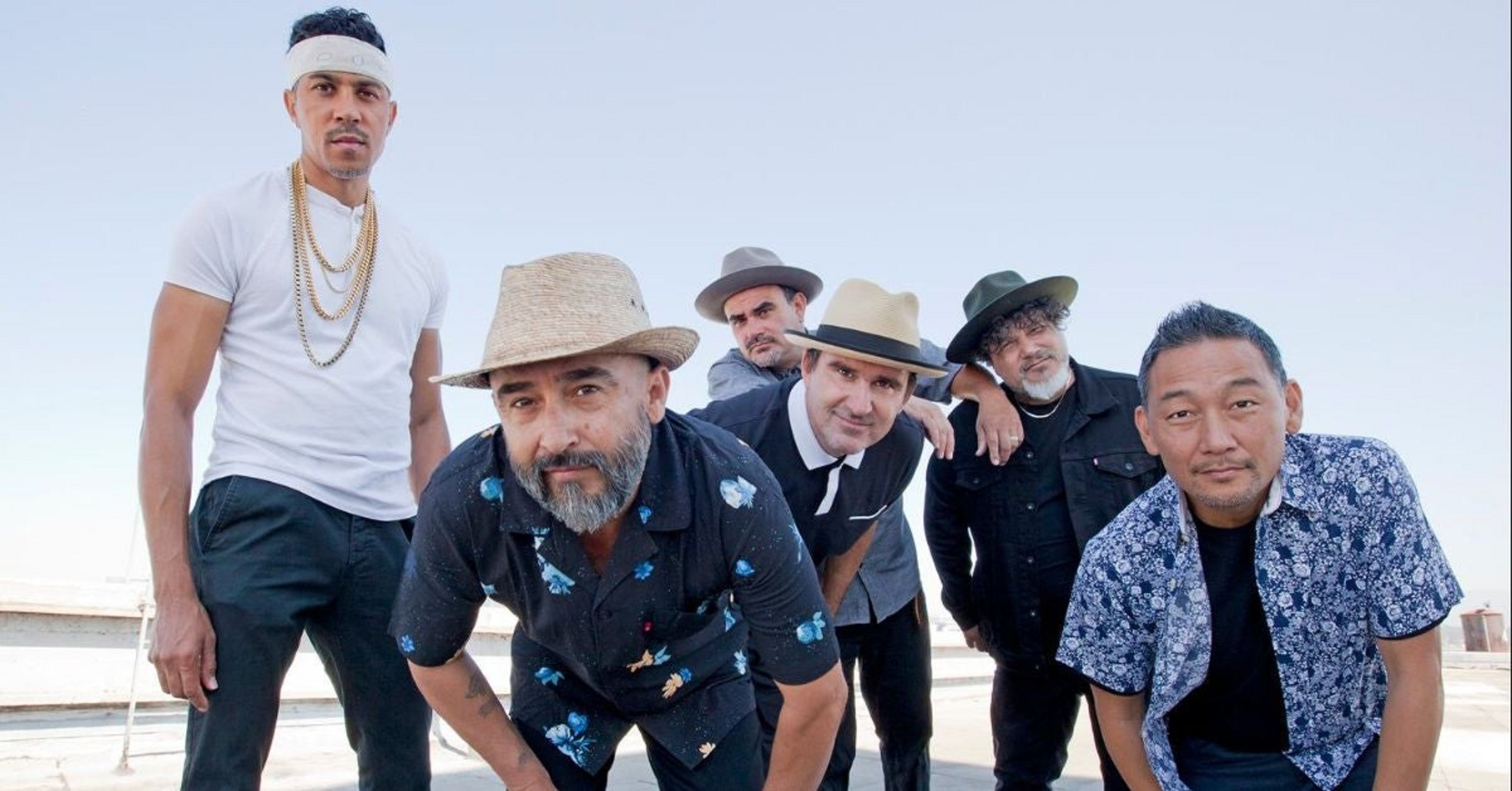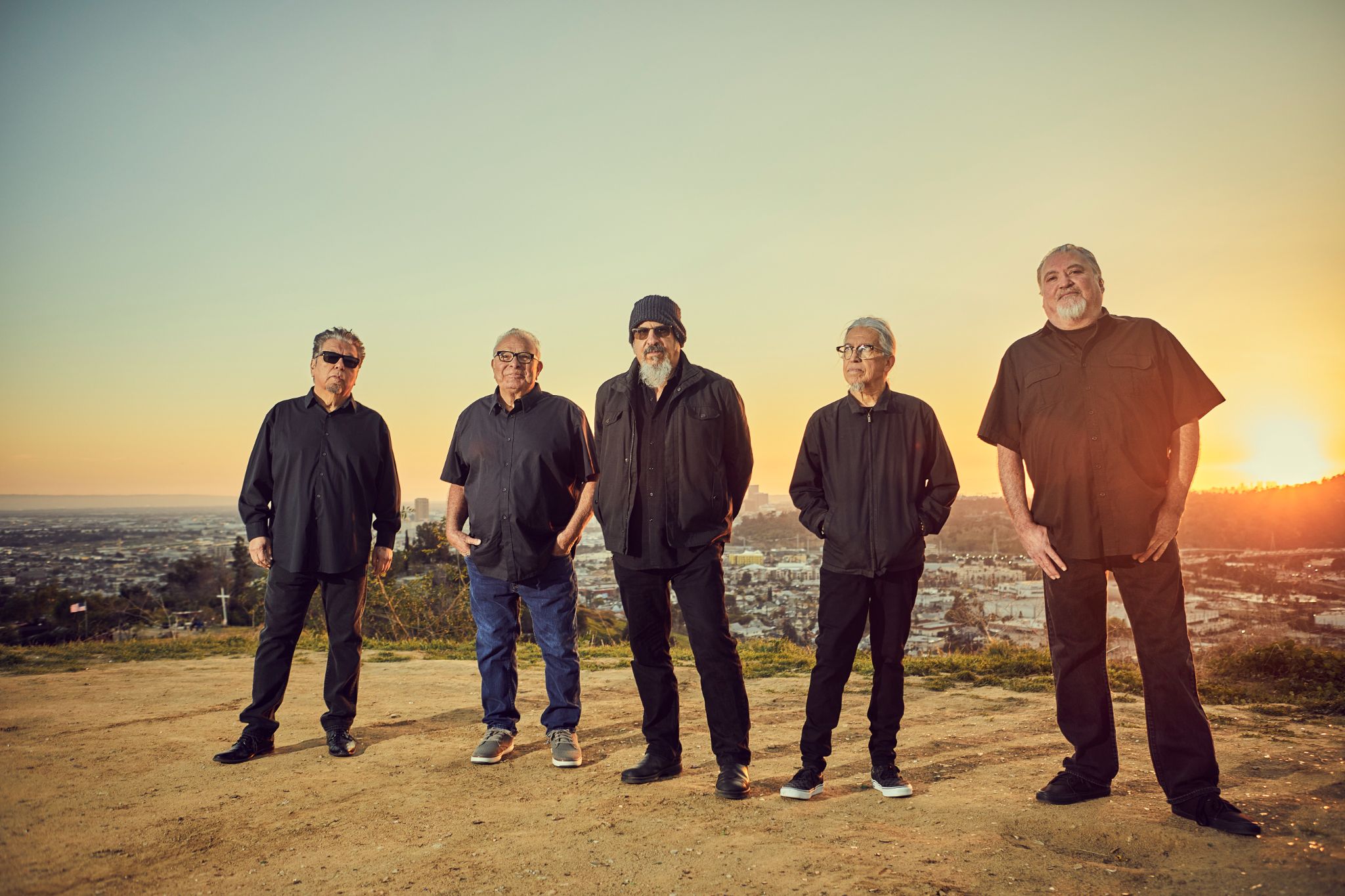The journey of Los Lobos began in 1973, 50 years ago this year, when David Hidalgo (vocals, guitar, and pretty much anything with strings), Louie Perez (drums, vocals, guitar), Cesar Rosas (vocals, guitar), and Conrad Lozano (bass, vocals, guitarrón) earned their stripes playing revved-up versions of Mexican folk music in restaurants and at parties. The band evolved in the 1980s as it tapped into L.A.’s burgeoning punk and college rock scenes. They were soon sharing bills with bands like the Circle Jerks, Public Image Ltd. and the Blasters, whose saxophonist, Steve Berlin, would eventually leave the group to join Los Lobos in 1984.
Early on, Los Lobos enjoyed critical success, winning the Grammy® for Best Mexican-American Performance for “Anselma” from its 1983 EP …And a Time to Dance. A year later, the group released its full-length, major-label debut, How Will the Wolf Survive? Co-produced by Berlin and T Bone Burnett, the album was a college rock sensation that helped Los Lobos tie with Bruce Springsteen as Rolling Stone’s Artist of the Year.
A major turning point came in 1987 with the release of the Ritchie Valens biopic, La Bamba. The quintet’s cover of Valens’ signature song topped the charts in the U.S. and the U.K. Rather than capitalize on that massive commercial success, Los Lobos instead chose to record La Pistola y El Corazón, a tribute to Tejano and Mariachi music that won the 1989 Grammy® for Best Mexican-American Performance.
That kind of sharp artistic turn has become Los Lobos’ trademark, serving to both fuel the band’s creativity and keep its fans engaged. In 1992, that willingness to defy expectations led them to record Kiko, an adventurous album produced by Mitchell Froom that’s considered by many to be one the band’s very best.
Since then, Los Lobos has continued to deliver daring and diverse albums such as Colossal Head (1996), Good Morning Aztlán (2002), The Town and the City (2006), Tin Can Trust (2010) and Gates of Gold (2015). On top of that, the band’s live shows never disappoint, as documented on the recent concert recordings Live at the Fillmore (2005) and Disconnected in New York City (2013). Through the years, they’ve managed to keep things interesting with unexpected side trips like an album of Disney songs in 2009, along with countless contributions to tribute albums and film soundtracks. One of those – “Mariachi Suite” from the 1995 film Desperado – earned the band a Grammy® for Best Pop Instrumental Performance. Los Lobos’ love letter to the city of Los Angeles as their album Native Sons (2021), returned the band to the Grammy winner’s circle with Best Americana Album of 2022. In 2023, Los Lobos celebrates its 50th anniversary as a band, a rare and impressive feat, as the band continues its great legacy.
Los Lobos has sold millions of records, won prestigious awards and made fans around the world. But perhaps its most lasting impact will be how well its music embodies the idea of America as a cultural melting pot. In it, styles like son jarocho, norteño, Tejano, folk, country, doo-wop, soul, R&B, rock ’n’ roll and punk all come together to create a new sound that’s greater than the sum of its parts.
About Ozomatli
If the city of Los Angeles had a soundtrack, it would be Ozomatli’s music. Since forming in 1995, the lineup’s collaborative, energetic blend of multi-cultural music and activism has earned the band three GRAMMYs®, four Hollywood Bowl shows, a TED Talk and much more. But more importantly, Ozo has inspired and energized listeners worldwide. Even at gigs in locales including Burma and Mongolia, Ozomatli’s messages and music, sung in both Spanish and English, need no translation. Circa 2022, Ozo’s new songs, stronger-than-ever brotherhood and the potent emotional impetus behind Marching On further cements the legacy begun with the band’s 1998 self-titled debut.
Like The Doors, X, Los Lobos, the Red Hot Chili Peppers and other L.A.-based artists who take cues from the city and also reflect and unearth its movements, Ozomatli and Marching On reaches from the curbs to the high-rises. With musician/producer David Garza (Fiona Apple, Sparta) producing in pre-pandemic 2020 at El Paso’s Sonic Ranch, Ozo were honored with esteemed musical guests who contributed to the 11-song album.
On “Fellas” Ozo is joined by J.J. Fad and Lisa Lisa. “We were working on a song that was almost like an ‘80s song with acoustic instruments,” explains Ulises Bella. “But also 808 [drum machine] music.” Uli had recently seen Lisa Lisa live—"such a great singer, tight band, so many hits!”—and a series of fortuitous social media interactions found Lisa Lisa and Uli in touch, resulting in her star turn on the track. Then, even though they hadn’t recorded in more than 30 years, influential ‘80s female freestylers J.J Fad (“Supersonic”) eagerly jumped on the chance to work with Ozo and Lisa Lisa on “Fellas.”
For “Mi Destino,” sung in both English and Spanish, Ozo were stoked to connect with B-Real, as Cypress Hill and Ozo had been on each other’s radars for decades. It was a DM that put B-Real in contact with Ozo. “And literally every step after that, the stars were aligned,” Uli says. “Unicorns were fucking dancing and somehow it all worked out and he got on ‘Mi Destino,’ and we also got Gaby Moreno on the track. It was definitely a deep kind of thing we’ve been needing and wanting and marinating on, and then it manifests.”
Of soulful Guatemalan singer-songwriter Moreno, guitarist Raúl Pacheco observes: “She just came up with this whole other kind of a style on it, really beautiful and spiritual.”
“It’s super-cool that we got really iconic, impactful women of that era and beyond on our record,” adds Uli.
The 11 songs are a unified blend of the members’ influences and ideas. Or, as founding members Jiro Yamaguchi and Uli explain: "You drive down Sunset Boulevard and turn off your stereo and roll down your windows and all the music that comes out of each and every different car, whether it's salsa, cumbia, merengue, Hip Hop, funk or whatever, it's that crazy blend that's going on between that cacophony of sound is Ozomatli, y'know?"
The Marching On journey was ideally suited for producer Garza, himself a musician familiar with Ozo’s Latin, hip hop, and rock music with salsa, jazz, funk, and world music influences. Being away from home allowed the band to focus tightly. “Sonic Ranch is an incredible location with four studios. You live on site, you are fed every day, so it’s totally geared toward whatever shows up in terms of creating music,” Raúl explains. “It was centering; just art- and music-making, us just trying to say ‘yes’ to David’s requests and our ideas. So, there’s a very unified sense to this album, even though we’re all so different, which you can also feel.”
Marching On features Uli’s lead vocal debut on the song “Mula.” “Part of the inspiration was us being right there next to the border and hearing all these stories from people who were working nearby and at the studio,” he recalls. “It was just crazy shit they've encountered, with the history of El Paso and how violent it can be, and the disappearance of women.” On the creepy noir story-song, Uli says he went for the “Chicano, Tom Waits-wise,” take on the tune. “’Mula’ is pretty dark and messed-up.”
While the basic tracks were all completed at Sonic Ranch, due to the pandemic, other parts of the record were completed remotely. Despite the often-terrifying uncertainty of the world during this time, ultimately Ozo were able to complete Marching On, which turned out to be an almost prescient song and album title. As the lyrics to the track clarify: “Yeah we keep marching till the justice reigns / And the world sings the freedom’s song / Yeah we keep marching while the battle rages / As the new generations born / Till we right the wrongs.”
For a band who thrive on touring and connection, much of 2020 “felt bleak,” Ozo unable to share their musical and socio-political passions on tour. “We did a couple online concerts, but watching a show is not ever going to be the same as being at the show,” says Uli. “There's only so much you can party on your couch in your living room with your dog.”
Finishing Marching On was difficult emotionally and logistically, but Ozo rose to the task. Tracking some vocals at home, Raúl discovered, “I learned so much. I got better in that process because I'm being challenged.”
No matter the circumstances, Ozomatil are driven: Driven to make themselves, their music and the world a better place. And that begins at home—which, for Ozo, is music and lyrics. “The song is kind of like a sacred responsibility,” concludes Raúl. “It takes hard core passion to push whatever the song is to the best it could be. I take it very personally.”
Of the vividly stunning album cover for Marching On, Raúl explains, “This figure represents the origin of the human race, an earthly mother who over time continues to store, carry, and share collective knowledge. She shares this knowledge through many faces and many pairs of eyes, representing all the varying cultures of the world, they are all from the same body, the same source. This mother figure, like the human race, is choosing to continue to move forward, she compels us to keep Marching On and remember our collective connectedness.”
Ozomatli’s commitment to social justice is ongoing. Their 2019 single “Libertad,” with founding members Chali 2na (Jurassic 5) & Cut Chemist, was the first collaborative release together since Ozomatli’s 1998 debut album. It highlighted the struggle of Latin workers in the U.S. who sacrifice everything to help family on the other side of the border wall. Ozomati’s ongoing work in the world has not gone unnoticed. In 2008 the U.S. State Department appointed the band United States Cultural Ambassadors; in 2009 and 2010 they performed for President Barack Obama. And hometown honors came in 2013 when April 23 was deemed “Ozomatli Day” in perpetuity.
In some ways, Ozomatli’s raison d’etre is summed up in “Mi Destino’s” lyrics: “To put it plain and simple there’s no halt in the walk / Destined for future lessons unbelievable thoughts / We are the navigators and the journey the clock / Set all the gears in motion to pop.”
Ozomatli want everyone to join them, on the dance floor, in the mosh pit, in the trenches, just “one more” time, if they would, as they sing on Marching On’s fifth track: “De que estás agradecido / Cual es tu mission / Levántate con fuerza / Una vez más por favor.”
CHAUTAUQUA 125TH BIRTHDAY BASH CONCERT
Saturday, July 8, 2023
Doors: 6:00 pm | Show: 7:00 pm
Tickets on sale Friday, April 7 at 10am HERE
$47.00 - $55.00 Reserved Seating tickets plus applicable service fees
All Ages





